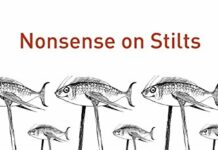
Ebook Info
- Published: 2013
- Number of pages: 480 pages
- Format: PDF
- File Size: 1.60 MB
- Authors: Massimo Pigliucci
Description
What sets the practice of rigorously tested, sound science apart from pseudoscience? In this volume, the contributors seek to answer this question, known to philosophers of science as “the demarcation problem.” This issue has a long history in philosophy, stretching as far back as the early twentieth century and the work of Karl Popper. But by the late 1980s, scholars in the field began to treat the demarcation problem as impossible to solve and futile to ponder. However, the essays that Massimo Pigliucci and Maarten Boudry have assembled in this volume make a rousing case for the unequivocal importance of reflecting on the separation between pseudoscience and sound science. Moreover, the demarcation problem is not a purely theoretical dilemma of mere academic interest: it affects parents’ decisions to vaccinate children and governments’ willingness to adopt policies that prevent climate change. Pseudoscience often mimics science, using the superficial language and trappings of actual scientific research to seem more respectable. Even a well-informed public can be taken in by such questionable theories dressed up as science. Pseudoscientific beliefs compete with sound science on the health pages of newspapers for media coverage and in laboratories for research funding. Now more than ever the ability to separate genuine scientific findings from spurious ones is vital, and The Philosophy of Pseudoscience provides ground for philosophers, sociologists, historians, and laypeople to make decisions about what science is or isn’t.
User’s Reviews
Reviews from Amazon users which were colected at the time this book was published on the website:
⭐This excellent collection of essays, edited by Pigliucci and Boudry, deals with a question that most people, aware of it or not, encounter in daily life: how do we tell the difference between genuine science and pseudoscience? It’s a question well worth considering as we are bombarded with the claims of “alternative medicine,” creationism, cryptozoology, etc., as it has serious implications in the legal, economic, and moral fields. The 23 essays included in this volume are very interesting in their treatment of the many aspects of this philosophical inquiry, but might be most suited to the serious student of philosophy. There is some serious food for thought here, but the casual reader might find the going heavy at times. For maximum enjoyment the reader should bring a broad vocabulary and an unabridged dictionary to the table, but will enjoy the rewards of the effort.
⭐This edited work includes several excellent original essays dealing with the demarcation between the sciences and those activities and assertions that make the unfounded claim to scientific status.
⭐We live in an age where science is a privileged epistemology (with good reason!), and as such, it becomes important to be able to distinguish what is science from what is not. Yet as this volume demonstrates, it’s much easier to say what is pseudoscience (creationism, astrology, homoeopathy) and what is legitimate science (big bang, evolution, germ theory) than it is to give an account of why something fits in either category. After reading these 23 entries, one should be clearer on why.Popper, so it is argued, erred when he tried for a single criteria demarcation. The first few essays try to rescue Popper’s project from Laudan’s 1983 criticism. I can only call it that because neither the Popper papper nor Laudan’s grace this volume – not too much of a problem for an academic with access to the supplementary material, but trying to figure out Laudan’s criticisms on the fly is the task confronting the layman in the early chapters.One of the things that surprised me was that the focus of the demarcation problem isn’t so much an academic issue as it is a cultural one – while there’s the issue of what’s funded and what’s worthy of study in the scientific community, largely the problem is for non-experts to recognise the difference between science and non-science. One interesting essay was by the philosopher Jean Paul Van Bendegem who argued for the ethical imperative to fight pseudoscientific rhetoric by turning it back on them.Aside from Van Bendegem’s essay, other highlights included Maarten Boudry’s essay on the boundaries of demarcation, Barbara Forrest’s essay on how Hume’s ideas apply to the problem, John Wilkins’ essay on the rationality of pseudoscientific beliefs, Konrad Talmont-Kaminski’s essay on the same subject, and Filip Buekens’ essay on the prevalence agency-based thinking. All the essays were worth reading, even if a couple of essays tended to be heavy on the jargon.
⭐In today’s complex world where the impacts of science are ubiquitous, it is essential that we understand good science and why the demarcation problem may be with us for a long time to come.
⭐An engaging presentation of what I had assumed was a simple problem, the separation of science from pseudoscience. Another tiny bit of ignorance was gently corrected. The world is rarely simple when we look and Pigliucci knows how to make investigations interesting.
⭐A diverse set of essays exploring controversies in philosophy and ethics around how to understand and label pseudoscience. A good read for skeptics.
⭐I read this book after enjoying “Nonsense on Stilts” (2011) by Massimo Pigliucci. That book seemed suitable for a moderately well-read lay audience, including me. “Philosophy of Pseudoscience” is an edited collection of invited papers from 23 authors, most of whom are academic Philosophers.With diligence and unwonted effort, I did read the whole book. It helps to be familiar with the language of Philosophy. For example, the words Normative, Descriptive, and Methodological evidently have precise definitions in academic Philosophy. With my pre-existing bias favoring Pigliucci’s and Michael Shermer’s views on Demarcation, I found most of the remaining authors more interesting for their style than their substance.
⭐In the preface Pigluicci misunderstands falsability as if one idea is false then is scientific… a severe fail for a philosopher of science. Actually Popper said that all scientific theories are provisionaly right till it proves wrong. So there is no way to say astrology is science from falsabilism. Pigliucci, as usual, exposes unjustified claims about what philosophers and scientists (virtually alll) think about psychokinesis… which is not a science but a suposed phenomena so cannot be pseudoscience. In Chris Carter (2007) we can read that to 55% to 67% of scientist thinks that PSI is possible. Finally Pigliucci adds some papers on cognitive bias that is not an epistemological issue but a psichological and gives some confussion on what philosophy is. Pseudoscience is trying to mantain some claim with scientific fashion but without respecting demarcation criteria. You can find it on biology, cosmology, physics, medicine… I don’t think is useful to philosophy to post a repeated list of alleged pseudosciences but to find which kind of practices meet the criteria and which don’t.So no, I’m not a reader of the whole book, I’m only evaluating preface and table of contents.
⭐This is a great contribution to the perennial debate about whether pseudoscience is a helpful epistemological category; it successfully refutes the claim that the demarcation dispute is dead, and instead gives a pragmatic toolkit for identifying valid from erroneous science. The idea of using fuzzy logic is particularly appealing, and I feel it may actually be the best way forward.
⭐Great book…expertly plotted with lots of creativity. I would highly recommend this book to others who enjoy reading about this subject area.
Keywords
Free Download Philosophy of Pseudoscience: Reconsidering the Demarcation Problem in PDF format
Philosophy of Pseudoscience: Reconsidering the Demarcation Problem PDF Free Download
Download Philosophy of Pseudoscience: Reconsidering the Demarcation Problem 2013 PDF Free
Philosophy of Pseudoscience: Reconsidering the Demarcation Problem 2013 PDF Free Download
Download Philosophy of Pseudoscience: Reconsidering the Demarcation Problem PDF
Free Download Ebook Philosophy of Pseudoscience: Reconsidering the Demarcation Problem


